Spaces for Endless Performance
Sound shapes reality. Architecture becomes a living canvas where every surface breathes with acoustic precision.
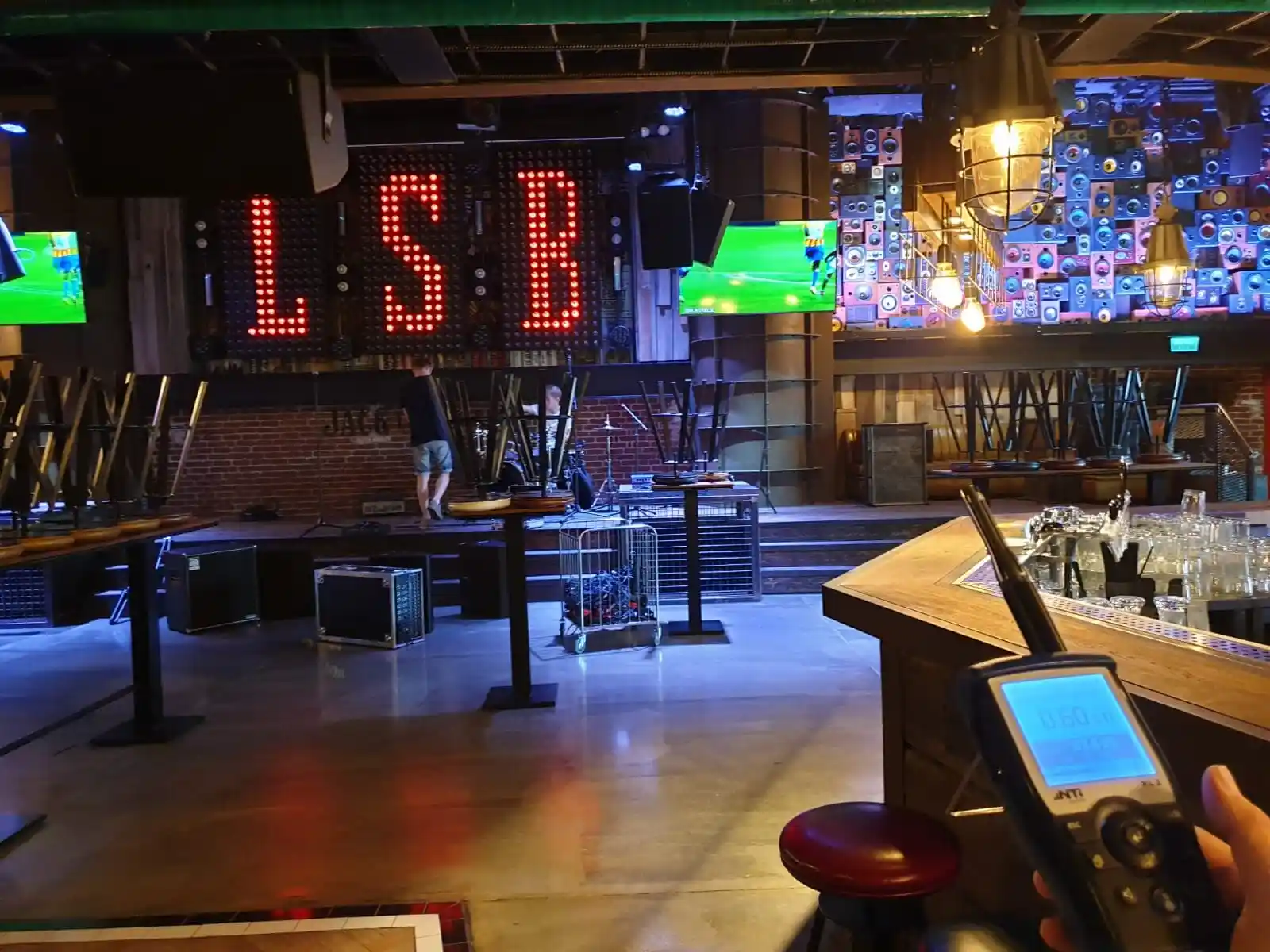
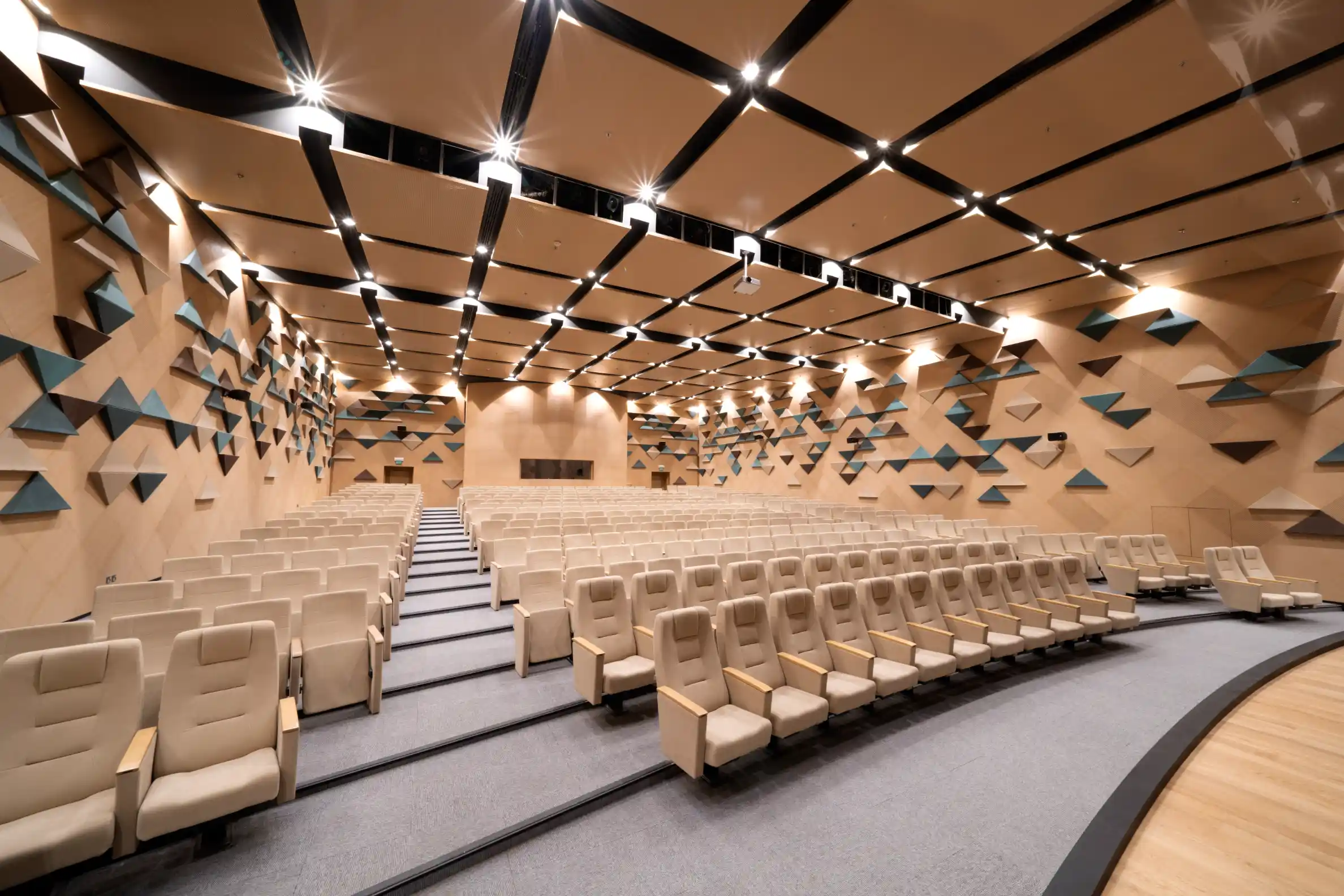
Auditoriums & Conference Spaces
An auditorium is a specialised environment designed to host audiences for a diverse range of high-performance events — from lectures and conferences to theatrical performances. Its primary goal is to create a setting where architectural form and acoustics work together, delivering speech clarity and immersive visual comfort for every attendee.
Seating Layout
Effective seating design achieves a balance between functionality and audience engagement.
What is Sound Clarity?
Clarity depends on the right balance between absorption and diffusion, ensuring every word is heard naturally.
Performing Arts Spaces
Performing arts spaces are complex environments where architecture, stage technology, and acoustics converge to support artistic expression and precision. Every element — from stage geometry to material reflection — defines how performance is seen, heard, and felt.
What Shapes a Stage?
Spatial proportions and sightlines define how performers connect with their audience.
System Integration
Lighting, rigging, sound, and control systems operate in unity, ensuring precision and reliability during a performance.
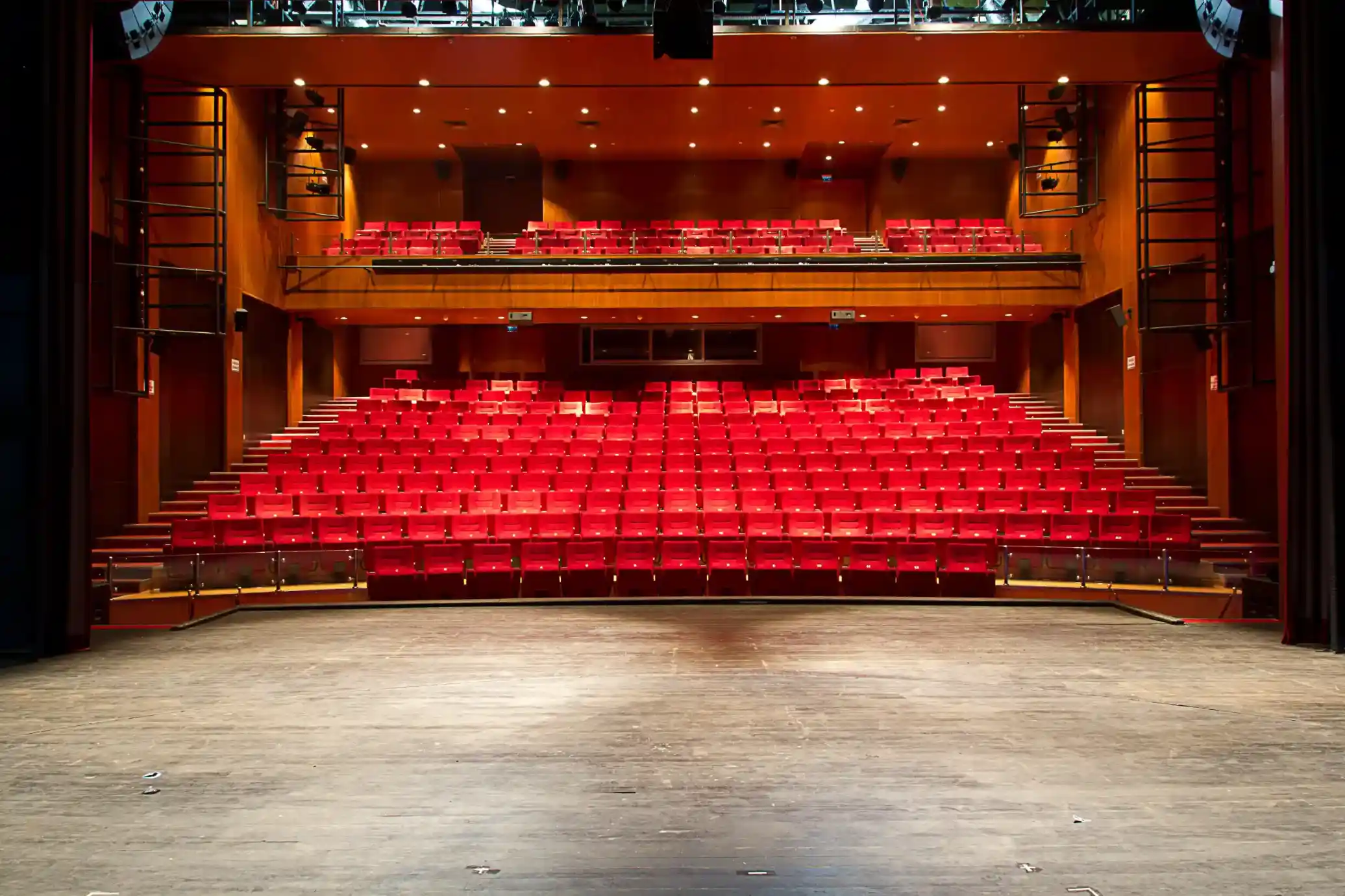
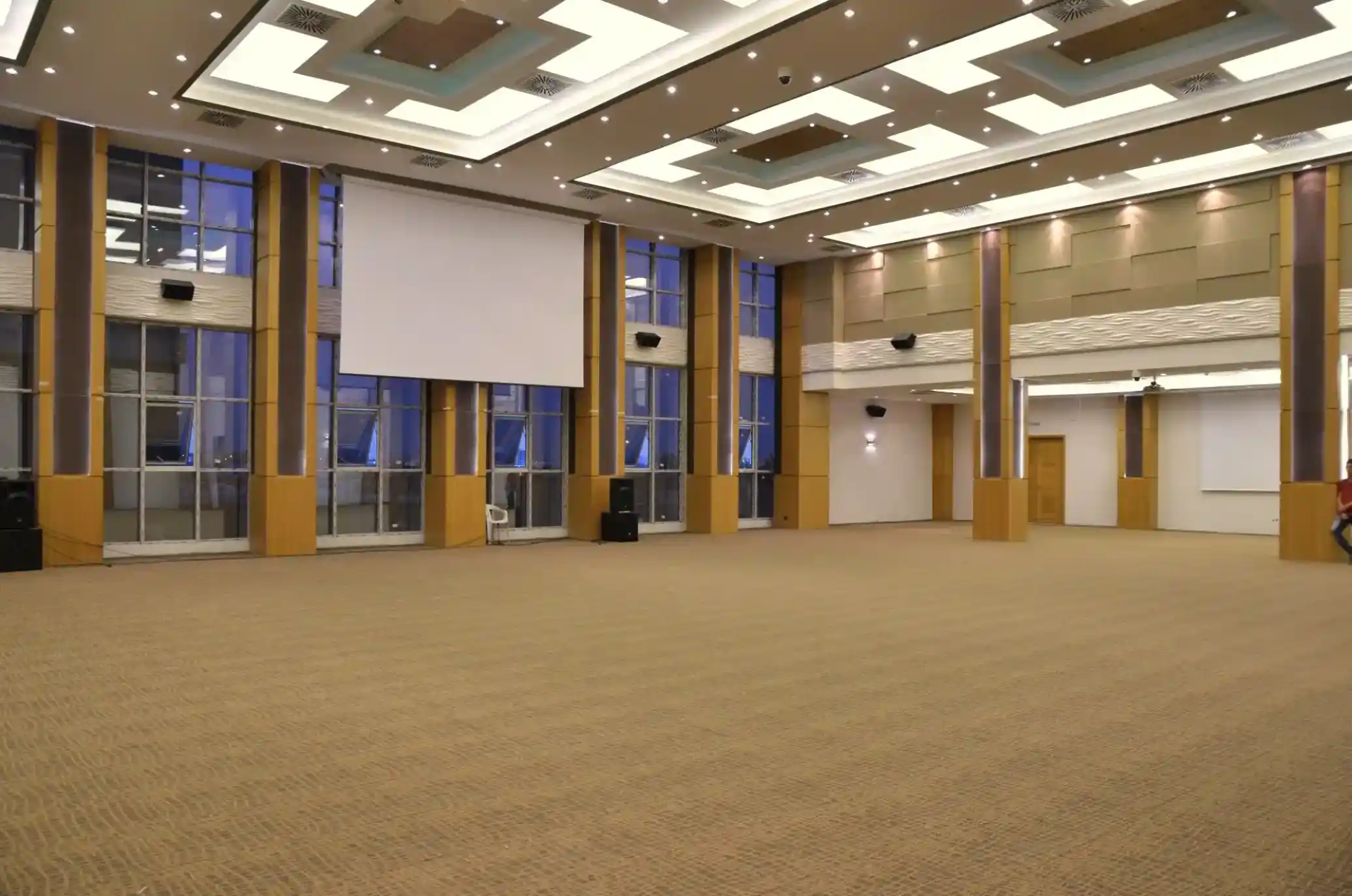
Multipurpose & Event Halls
Multipurpose and event halls are flexible environments designed to serve diverse functions — from conferences to ceremonies. Performance depends on adaptable layouts, integrated systems, and stable acoustic balance under variable conditions.
Turning this versatility into an operational advantage requires merging spatial flexibility with advanced technology. Retractable seating systems and advanced AVL integration, which allow the venue to reconfigure for different purposes in seconds, are the keys to operational efficiency.
Flexibility
How can a single space transform for different events without losing acoustic precision?
Acoustic Balance
Sound distribution and reflection are calibrated to preserve emotion while maintaining technical precision.
Educational Environments
In schools and universities, noise control extends beyond classrooms — from canteens and sports halls to meeting and lecture rooms. Acoustic treatment in existing spaces improves speech clarity, reduces reverberation, and creates a calmer, more effective learning atmosphere.
Acoustic Challenges
How can large, reflective spaces be optimised for speech and comfort without major architectural changes?
Treatment Solutions
Tailored wall panels, ceiling absorbers, and diffusers reduce noise, enhance clarity, and adapt to each room’s acoustic need.
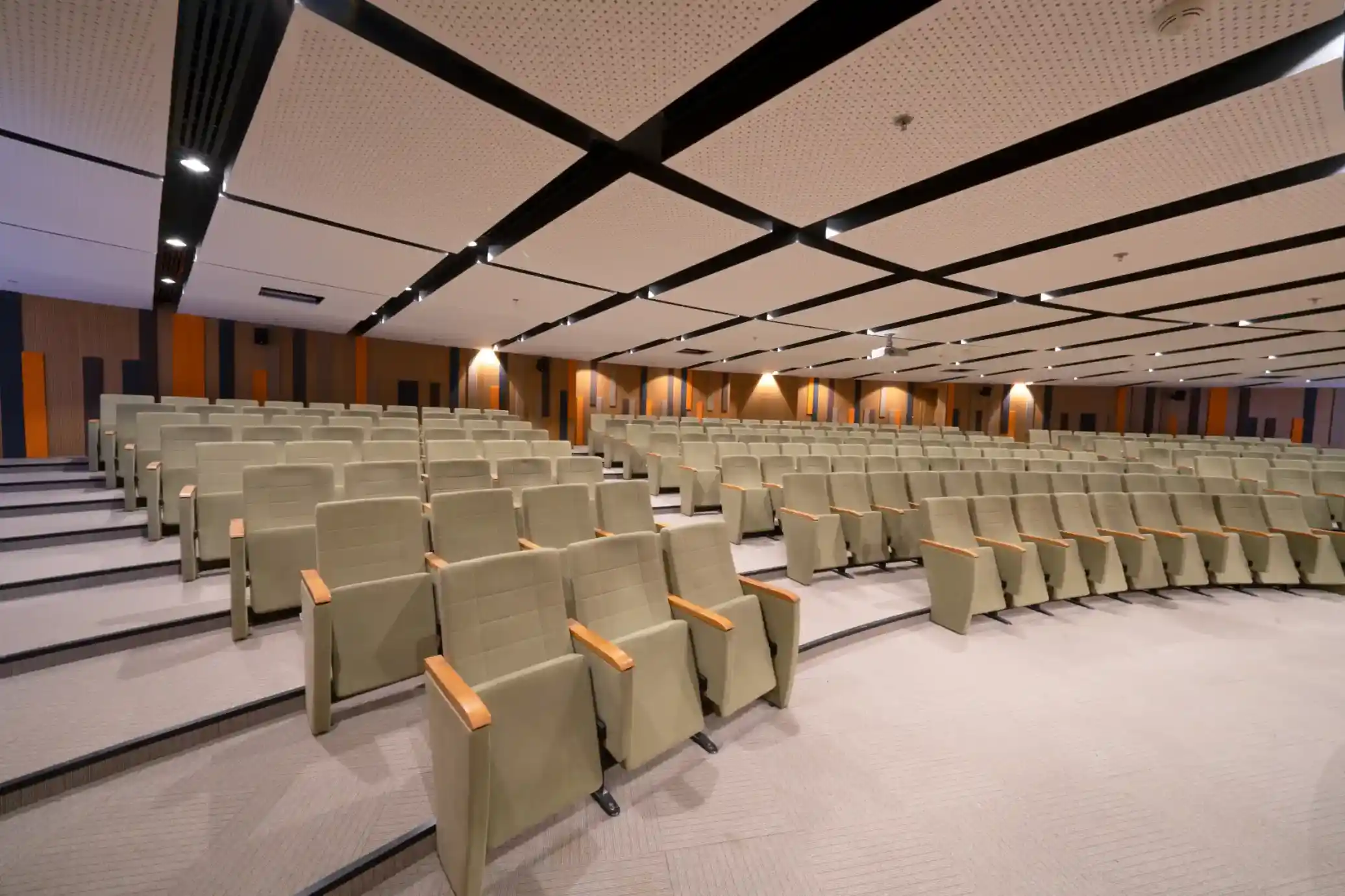
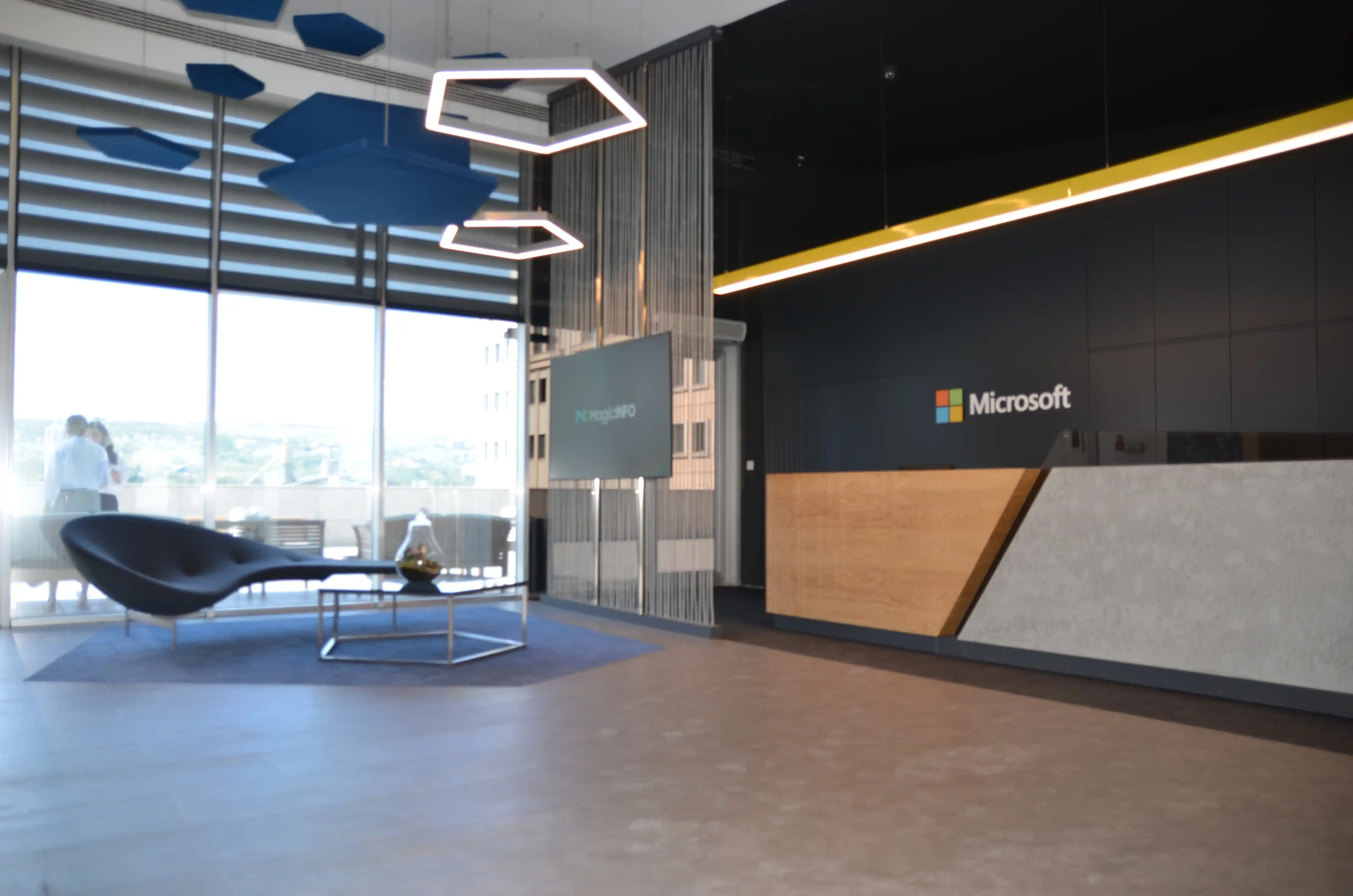
Offices
& Workspaces
Modern workplaces are dynamic environments—spaces where people think, create, and collaborate. But without acoustic control, even the most well-designed office can become a source of distraction. In open-plan layouts and multifunctional zones, sound must be managed carefully to support both focus and flow.
How does sound shape productivity?
How does background noise affect concentration and overall performance in shared workplaces?
Acoustic Zoning
From partitions and wall panels to ceiling absorbers, layered treatments define quiet zones, promote privacy, and support flexible team interactions without compromising openness.
Cinemas & Entertainment Venues
Cinemas are immersive environments where architecture, sound, and light converge to deliver shared emotional impact. A carefully calibrated balance of acoustics and spatial design turns each moment on screen into a sensory experience that lingers long after the credits roll.
Acoustic Precision
Balanced reverberation, speech intelligibility, and spatial diffusion define the emotional weight of each cinematic moment.
What keeps audiences engaged?
Cinematic design must support comfort, focus, and emotional connection—from the first frame to the last.

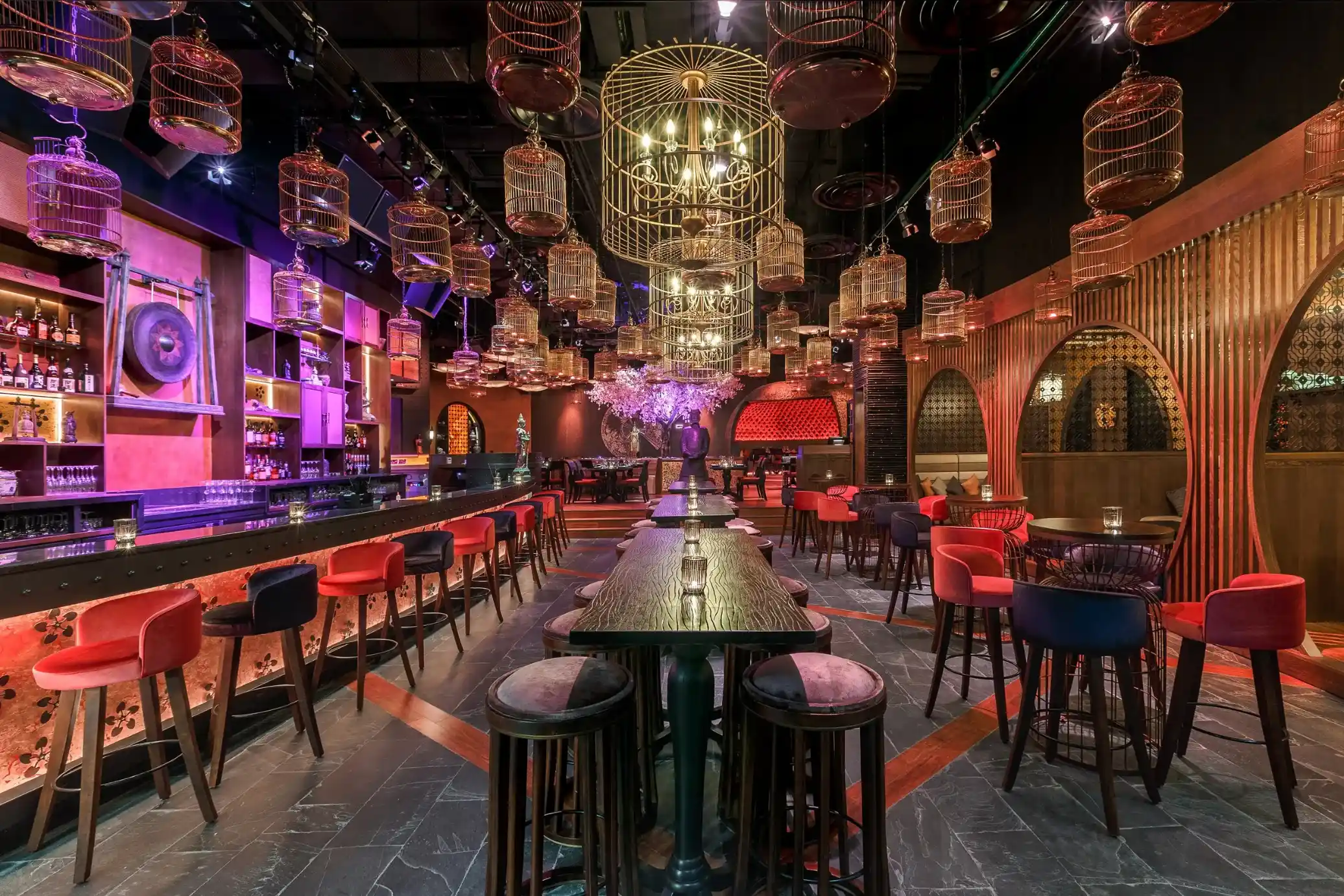
Restaurants,
Bars & Lounges
In social venues, experience is shaped by design long before the menu is read. From the alignment of tables to the softness of materials, from the lighting above to the resonance in the room—every detail defines the pace, intimacy, and rhythm of interaction. These spaces aren’t just visited. They’re felt.
What defines a space you want to return to?
Comfort, clarity, and rhythm—when aligned—make presence effortless and memory instinctive.
Spatial dialogue
Lighting angles, material tactility, ceiling volumes, acoustic layering—each element tuned to the frequency of social experience.